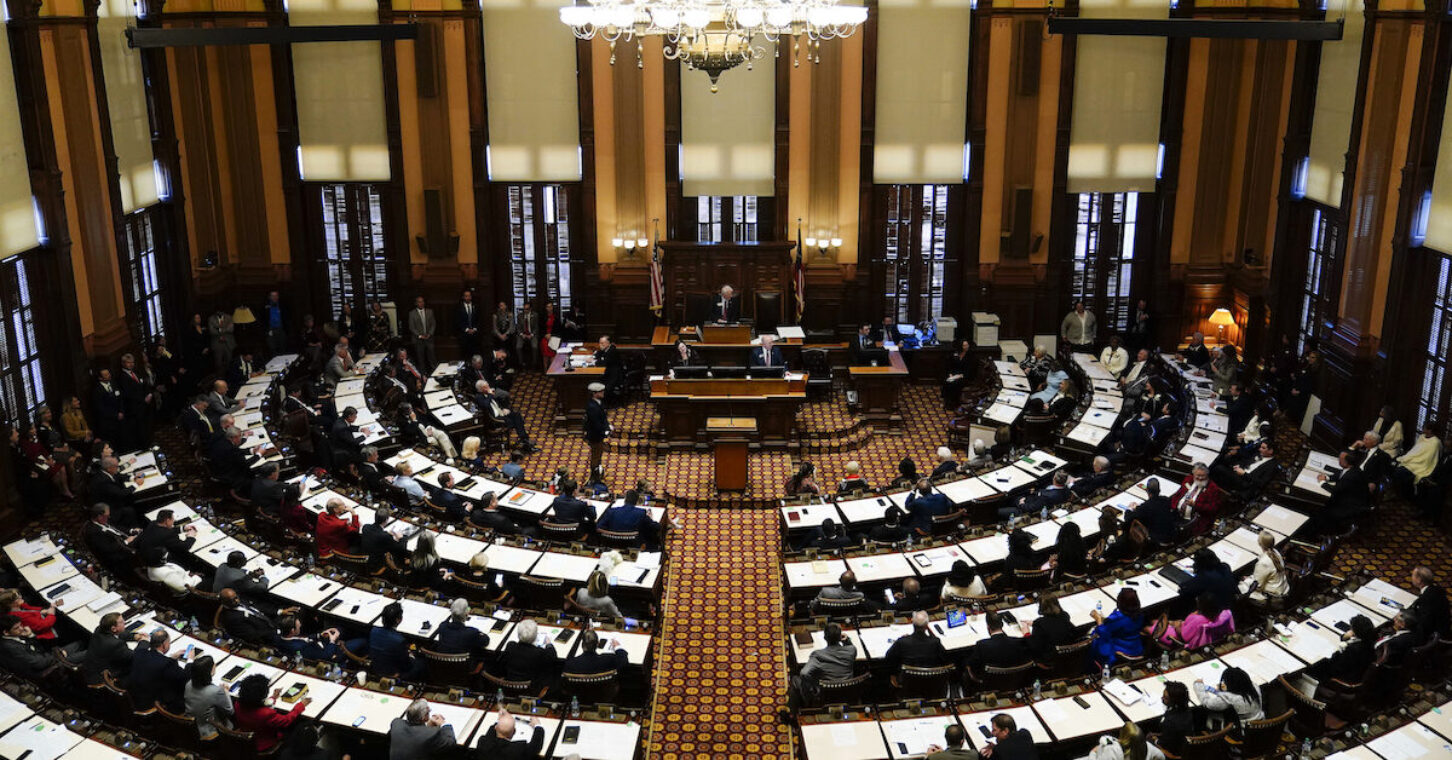
The legislative session came to a ceremonious close this week, as Sine Die marked its 40th and final day. A three-month-long confluence of legislators, interests, lobbyists and public policy experts can be taxing for even the most hardened veterans of Georgia politics.
With the janitors having only just finished cleaning the chamber floors and most lawmakers headed home – some retiring from public service, others facing re-election campaigns – the Foundation offers this review of how some of its biggest policy issues fared in 2024. The story of this year’s session is ultimately one of tangible, if incremental, progress.
Promise Scholarship Accounts
After passing the Senate and falling short in the House last year, Senate Bill 233 finally crossed the finish line in 2024. The Georgia Promise Scholarship Act offers participating families $6,500 for use on private school tuition and other educational expenses.
For Georgia, this is a substantial move toward educational freedom, despite it being a bit late to the party. SB 233, sponsored by Sen. Greg Dolezal, R-Cumming, began with universal eligibility but ultimately offers limited access, as it is only available to public school students zoned for the bottom quartile of performing schools. Also, late changes to the bill included a sunset provision after 10 years unless future lawmakers extend the program. Though not universal like new programs from our neighbors in Florida, Alabama or North Carolina, expanding options to tens of thousands of Georgia students is certainly a step in the right direction. School choice supporters have worked hard and waited a long time to see their efforts pay off this year.
CON
For years, the Foundation has highlighted the need for reforming Georgia’s certificate of need (CON) laws, including in a detailed economic report last year. CON laws allow the state government to determine whether new healthcare facilities and lines of service are allowed to open, a practice that reduces access and increases costs for patients.
Lawmakers did revise Georgia’s CON laws this year. But while progress should be commended, the legislation leaves plenty of opportunity for future legislators. House Bill 1339, sponsored by Rep. Butch Parrish, R-Swainsboro, removes CON regulations in certain circumstances and eases processes in others. The final version of this bill allows rural hospitals to open without a CON so long as they receive a trauma center designation within 30 months of opening, serve as a teaching hospital for residents and provide psychiatric and behavioral health services. The bill also eliminates the CON requirement for psychiatric or substance abuse programs and for birth centers.
Similar to Promise Scholarship Accounts, this effort is ultimately a positive result, but left a few runners on base. Last year, after multiple CON bills failed to pass out of the Georgia General Assembly, our neighbors in South Carolina voted unanimously to repeal the state’s CON regulations completely, while other neighboring states are considering similar paths.
Taxes
Much of the discussion heading into this year’s session centered on taxes. Georgia’s budget surplus is a great opportunity to relieve taxpayers, and the Foundation encouraged an aggressive approach in doing so. Options for legislators to pursue were outlined in a February report the Foundation co-published with the Ohio-based Buckeye Institute in February, and Foundation President and CEO Kyle Wingfield testified before the House Ways and Means Committee and Senate Finance Committee about what Georgia must do to remain competitive in a low-tax region.
The General Assembly passed House Bill 1015, by Rep. Lauren McDonald, R-Cumming, which lowers the Georgia income tax from 5.49% to 5.39%, and House Bill 1023, by Rep. Bruce Williamson, R-Monroe, which matches the corporate income tax rate to the individual income tax rate.
Another worthy bill was House Bill 464, authored by Rep. Shaw Blackmon, R-Bonaire. This bill was a revision of the state’s income tax that would have eliminated a 15% cap on taxpayer money that can be reserved for a “rainy day,” such as an economic downturn. Unless we overlooked a late addition in the final, late-night flurry of lawmaking Thursday, this measure will have to wait until next year.
Workforce
Lawmakers attempted to protect Georgia’s status as the best state for business, as well as protect its workers’ rights, with the passage of Senate Bill 362, sponsored by Sen. Mike Hodges, R-Brunswick. This bill requires companies that receive certain taxpayer incentives to hold secret ballot elections for union representation at the sites or facilities receiving subsidies. Secret ballots, as opposed to the commonly used “card check” method of voting, protect workers’ privacy and prevent coercive unionization tactics.
The Foundation praised the passage of this bill, and Government Affairs Manager Kennedy Atkins testified in support before the House Industry and Labor Committee.
While not every result is worthy of the proverbial victory lap, the 2024 session brought significant progress. Compared to last year, when the House failed to pass either Promise Scholarship Accounts or CON reforms, there was important progress on several fronts. While it is encouraging to see the Foundation’s efforts, as well as those of our partners and supporters, pay off under the Gold Dome, we won’t rest on these victories. We will continue to fight for educational freedom, the right to work, access to quality healthcare and an economically strong Georgia.